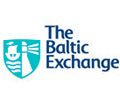
The Baltic Exchange's main sea freight index , which tracks rates to ship dry commodities, rose for a third session on Thursday as gains on the larger capesizes bolstered cargo demand.
But brokers said a potential drop in Chinese raw materials demand and fleet growth were likely to cap gains in the coming days.
The overall index rose 0.69 percent or 10 points to 1,453 points. The index has stayed erratic in recent weeks and has declined close to 20 percent this year.
Jeffrey Landsberg, managing director of dry bulk consultancy Commodore Research, said on Thursday only seven vessels had been chartered so far this week to haul iron ore to China compared with 21 for the whole of last week.
He said Chinese iron ore fixture volumes were likely to come under pressure as port stockpiles were reaching capacity.
"While May's small net addition to the capesize fleet aided rates significantly in late May and June, near-term capesize rates might be poised to come under pressure due to the current lull in Chinese iron ore demand," he said.
China may rein in plans to invest heavily in seven new strategic industries, including high speed rail and wind power, scaling back cutting-edge projects for industries suffering from old-fashioned problems such as corruption and overcapacity, sources said.
The outlook for dry bulk rates has been grim because ship supply has outpaced demand to ship commodities.
The situation has been compounded by the deployment of a vessel owned by top iron ore producer Vale of Brazil, the first of the world's largest dry bulkers to enter the fleet.
India's monsoon was also reducing iron ore exports as rivers rise, hampering goods transportation.
The Baltic's capesize index rose 0.47 percent. Average daily earnings rose to $14,111 -- at their highest since Jan.5. Capesizes typically haul 150,000 tonne cargoes such as iron ore and coal.
Consultants MSI said there were plenty of positives for dry bulk demand in the second half of 2011.
"In the steel market, lower iron ore and coking coal prices are likely to improve steel mills' profit margins and drive higher output and higher raw material purchases. New iron ore supply will also give a boost to shipping demand," it said.
"In coal, drops in thermal coal prices and a further rise in Chinese domestic coal price should boost trade. Non-ferrous ore imports to China are also likely to continue to soar."
The Baltic's panamax index rose 2.28 percent, with average daily earnings at $13,291. Earnings for panamaxes, which usually transport 60,000-70,000 tonne cargoes of coal or grains, had been hit in recent weeks by slower business.
Brokers said they were watching for further developments in China, which is facing its worst power shortages in years and likely to have an impact on dry freight activity. Uncertainty over prospects for the world economy could also potentially hurt demand for raw materials.
The main Baltic index has more than halved in the past six months, nearing levels last seen during the financial crisis in 2008.
"Vessel supply increase will on balance continue to outpace demand growth and we forecast a continual steady downwards trade in earnings for all vessel segments bar capsizes," MSI said.
"After enduring a terrible H1 this segment will build on recent modest gains over the next six months."
Source: Reuters
We use cookies to improve your experience. By continuing to use our site, you accept our Cookies, Privacy Policy,Terms and Conditions. Close X